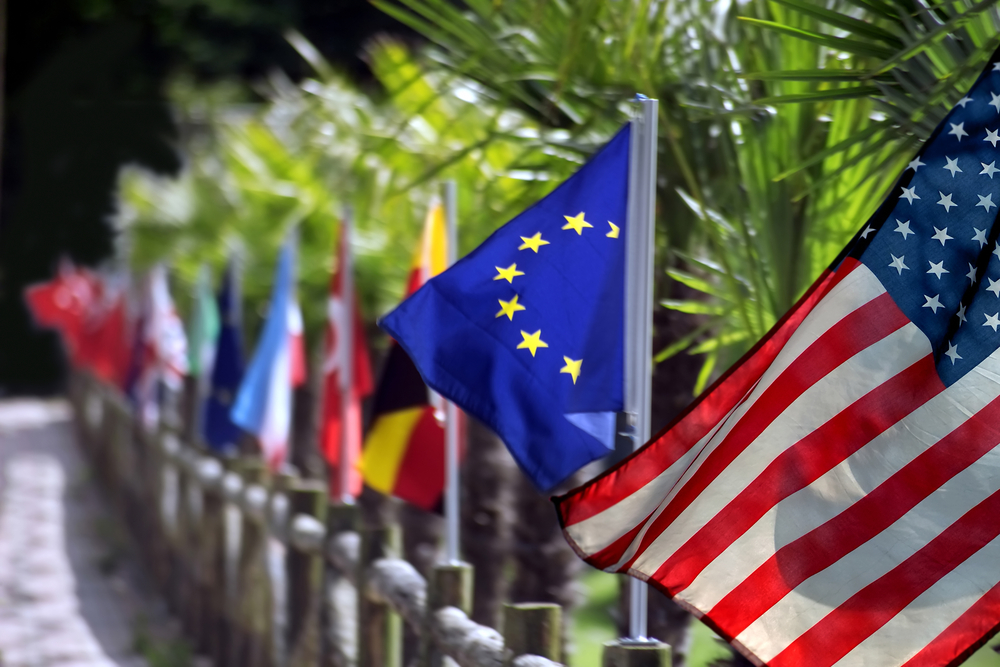New US-EU partnership expected to cost Turkey billions of dollars

By Elena Kosolapova
The Transatlantic Trade and Investment Partnership (TTIP) between the US and EU in its current form is expected to adversely affect the Turkish economy, Amanda Paul, policy analyst at the European Policy Centre told Trend.
“TTIP [between the US and EU] is expected to adversely affect the Turkish economy, potentially costing Ankara billions [of dollars], so Ankara needs a solution,” she said.
Within the terms of the EU Customs Union, Turkey has no say in negotiations the EU carries out with third countries, but is obliged to abide by the terms agreed, meaning Turkey has to open its markets while not being allowed to enter these third country markets as Ankara is not part of the EU, Paul added.
“Consequently, third countries are left with little incentive to negotiate free trade agreements with Turkey,” said the expert.
The EU is aware of Turkey’s concerns over the Transatlantic Trade and Investment Partnership, said Amanda Paul. “Negotiations are ongoing between Ankara and Brussels to resolve this issue within the discussions aimed at enlarging and upgrading the current framework of the EU Customs Union.”
Furthermore, the expert said that the European Commission has pronounced a "docking mechanism" to include Turkey, Norway and other countries to TTIP.
She added that there are ongoing meetings between the European Commission and Turkish Ministry of Economy officials. “The EU officials provide detailed information about the EU-US TTIP negotiation rounds with a view to sending a positive signal to the rest of the world that Turkey eventually will become an integral part of the TTIP.”
Ultimately, there is an easy solution, which is to add an article to the TTIP, saying that this will apply to all customs union member countries, she said.
At the same time, Amanda Paul added that Turkey is very
important for the EU.
Turkey is the 16th largest economy in the world and Europe’s sixth
largest trading partner, she said.
“Over 55 percent of the European economic legislation is already transposed to the Turkish legal framework,” said the expert. “Turkey is a part of the European single market through the Customs Union since 1996, hence Turkey technically belongs to the European economy.”
Amanda Paul said that the inclusion of Turkey into TTIP is also of crucial importance for European companies that are operating, producing in Turkey, adding that the Confederation of European Business, BUSINESSEUROPE and its members strongly support Turkey's inclusion to TTIP.
She reminded that Turkey’s Customs Union document has not changed since 1996, so it needed upgrading. “Ankara and EU officials now will discuss extending it to include services, public procurement and most agricultural goods.”
Earlier, Turkish minister for EU Affairs Volkan Bozkir said
Ankara will suspend its membership in the Customs Union with EU, if
its economic interests are not taken into account while signing of
the Transatlantic Trade and Investment Partnership agreement
between the EU and the US.
The minister added that if the US goods are delivered to the
Turkish market free of duty, Turkey can lose up to $2.5 billion-$3
billion.
Here we are to serve you with news right now. It does not cost much, but worth your attention.
Choose to support open, independent, quality journalism and subscribe on a monthly basis.
By subscribing to our online newspaper, you can have full digital access to all news, analysis, and much more.
You can also follow AzerNEWS on Twitter @AzerNewsAz or Facebook @AzerNewsNewspaper
Thank you!
